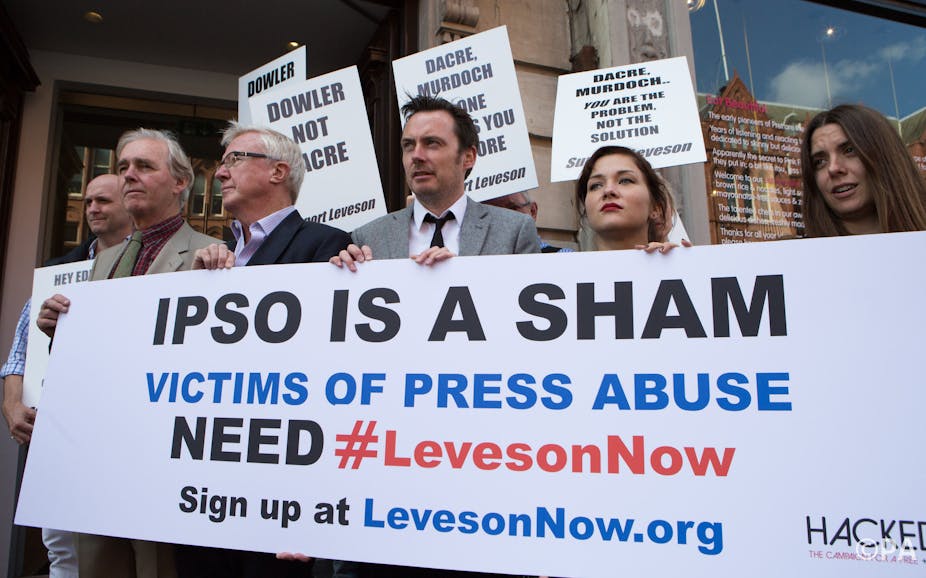Some time over the past few weeks, the nameplate outside the Holborn offices of the Press Complaints Commission was removed, leaving an empty space. And now its successor, the Independent Press Standards Organisation (IPSO) has been launched in its wake.
This is supposed to be a clean break from the PCC – a shift from the old, discredited regime of publishers’ poodle to a new, independent protector of the public interest. Its apologists like to repeat the mantra that it will be the “toughest regulator in the Western world”.

And yet that missing nameplate will, symbolically, very soon be replaced with an IPSO nameplate in exactly the same place. Same address, same company number, many of the same personnel. As some wag with a quick pen and quick wit demonstrated with their home-made nameplate on IPSO’s first day, this is essentially a reincarnation of the PCC with a different name.
In the only thorough and forensic analysis of IPSO’s articles of association, the non-aligned Media Standards Trust demonstrated that it satisfies just 12 of the Leveson inquiry’s 38 recommendations for independent and effective self-regulation of the press. There will, for example, be no mandatory arbitration scheme, even though this was a core Leveson proposal, suggested as a means of providing affordable justice to ordinary people who have been traduced by powerful, unaccountable publishers.
Investigations into ethical malpractice were, in Leveson’s scheme, supposed to be “simple and credible”. But IPSO allows up to six interventions by any publisher which finds themselves on the receiving end of an inquiry. What’s more, publishers are bound to IPSO through five-year contracts but no one knows what will happen after these expire.
But the biggest hole in IPSO’s pretence at independence is who actually controls the purse strings and the power. For behind IPSO sits the Regulatory Funding Company, which determines the regulator’s budget, the pay of board members, amounts available for investigations, guidance on financial sanctions, and whether any arbitration is set up. As the Media Standards Trust stated in its critique: “IPSO’s budget, its rules, its code, its sanctions, its investigations, will all be controlled by the RFC.”
And what is the Regulatory Funding Company? It is controlled by the major publishers whose ethics and practices were in the dock in the first place during the Leveson Inquiry and who funded the discredited PCC: Murdoch’s News UK, Associated Newspapers, Mirror Group and the Telegraph Group.
I have no doubt about the sincerity of IPSO’s chairman Alan Moses when he says he wants to create a genuinely effective system of press self-regulation. But history (and the testimony of politicians during Leveson) tells us that Britain’s national newspaper publishers are uniquely powerful beasts who are used to ducking and diving to deflect political pressure and protect their own corporate self-interest.
The hand-written nameplate called it right: IPSO is and will remain little more than a reinvention of its predecessor, which was manipulated by the industry and failed catastrophically. There will be no genuinely independent press self-regulation until Leveson’s recommendations are implemented, just as parliament decreed.

